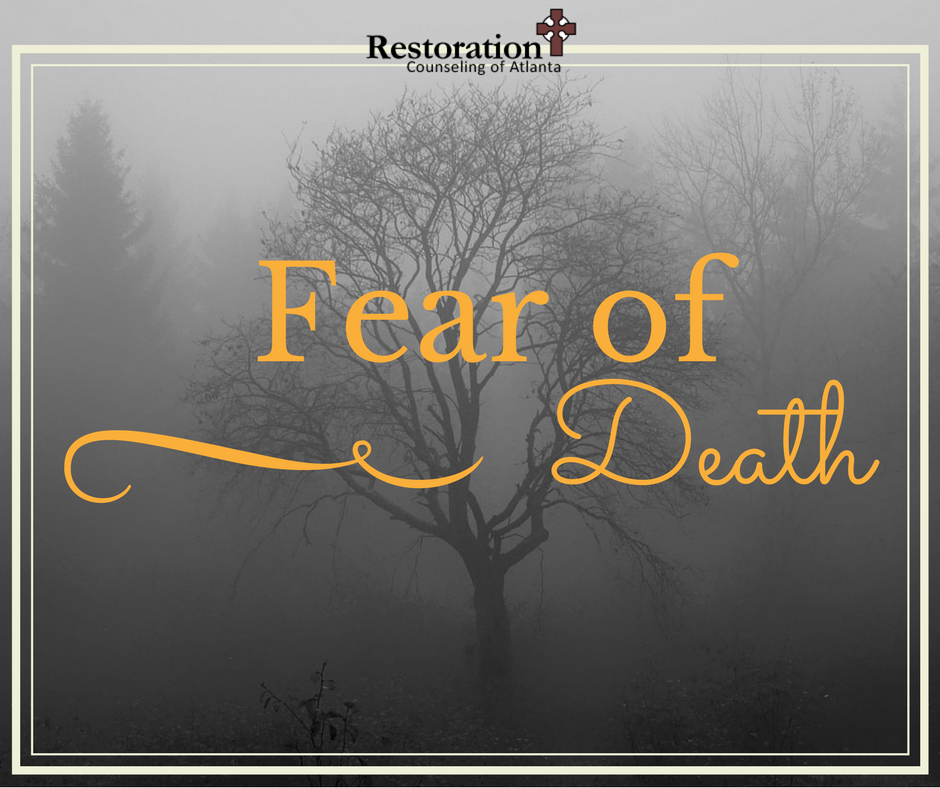By Jared Pogue, MEd, LAPC
Anyone who has ever experienced death, especially an unexpected death, knows how heavy loss can feel. More than just grieving, manifesting within someone can be an intense fear of death. Fear of death is a complex and extensive concern to carry, often taking years of work to progress. However, this doesn’t mean that you are powerless to help.
First, recognize that fear of death is significantly more likely to manifest in someone who has lost someone. This is something that they will not likely come forward about as it is an uncomfortable topic and no one likes reminding others of their own mortality. You will have to confront this within yourself somewhat before you take the initiative to bring up this topic to them.
Once the fear of death has been recognized together, spend some time weeping with this person, quite literally (providing that the situation calls for this). This is a reminder that all beautiful things will pass away and that every life will eventually be lost. Allow, for the moment, the denial of death to disappear and to experience this realization of death afresh. Don’t rush this step as it is the most important one!
When the time for shared grief has passed, remind the person that you are sorry for the loss and they are not alone. Nothing feels more isolating than death (and it IS isolating). Remember that the greatest weapon against fear is companionship. Remind the other person that they are not alone and do this as often as possible. Help them to see that they are not alone; help make that a daily reality for them because the only thing that they feel is likely isolation.
Remind them that you are with them and that God Himself is with them every time fear washes over them, even if it doesn’t feel that way. Remind them that, as David Powlison once said, “All our [fear] is headed toward [eternal] life, not death. Death does not have the last word. As we are in Christ, we are being irresistibly taken to life.” Fear is diametrically opposed to life; remind them that fear will never have the final word.
Let your body language, eye contact, and appropriate touch remind them that they have the strength and resources around them to confront fear. Nothing empowers people like knowing that others care for them.
Finally, continue in friendship with this person. Think of them often, pray for them often, ask how they are doing, and randomly drop by their home/work to give them a gift, send an encouraging text, send an encouraging card, allow them to be a listening ear for you from time to time. Let your actions and attitudes highlighttheir natural significance.
Remember that fatalism will eventually take hold of the spots where camaraderie is meant to live. When a person is left in isolation without hope, fear will eventually grow wildly out of control. Not even the best of friends can singlehandedly help them win this battle. Encourage them to work with a counselor as it can be difficult to begin battling fear. Recommend them to someone you personally trust in order to make this process easier.If they are comfortable with it, consider going to their first session with them. Do anything you can to lighten their load and remind them that they are truly not alone.

